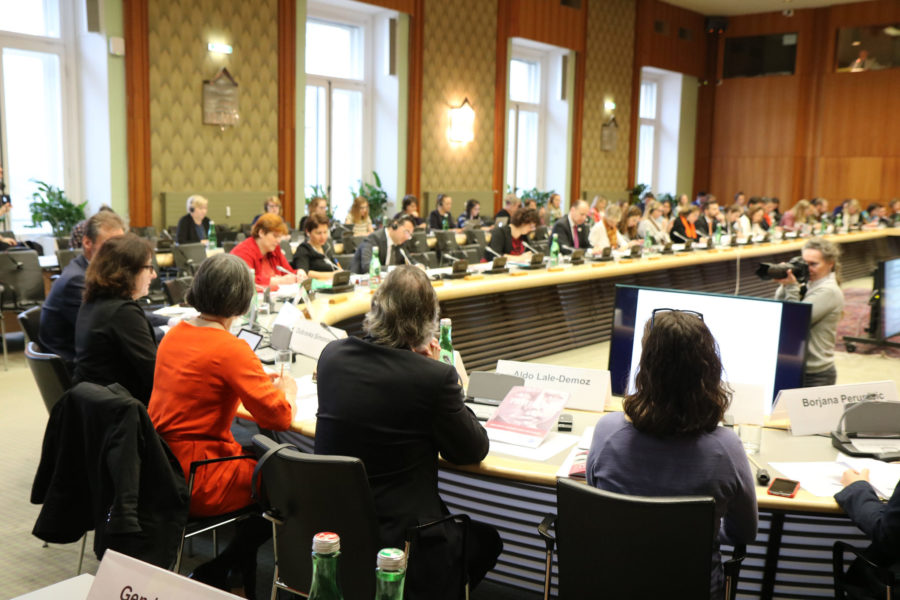31st January 2017
The Human Dimension

Human rights and fundamental freedoms are integral to the concept of comprehensive security embodied by the Organization for Security and Co-operation in Europe.
This year this UK has taken on the role of chairing OSCE Human Dimension Committee. This is one of the main pillars of the organisation. How governments treat their people, and we treat each other, is of direct relevance to stability and security as well as to the health of our societies. The UK has a proud tradition of upholding human rights and it will be an honour for me to chair the Human Dimension Committee.
Multilateral diplomacy can seem far removed from everyday lives. Sitting behind closed doors, diplomats negotiate agreements and declarations in peculiarly diplomatic forms and language. In the case of the OSCE Human Dimension the principles and commitments that underpin our work are directly relevant to everyday lives: they set standards for how the states behave towards each other and to the people within their borders.
Several international organisations, notably the UN but also regional bodies such as the Council of Europe, the Organization of American States, and the African Commission on Human and People’s Rights, set human rights rules and standards, some mandatory, some voluntary, for their member states. The OSCE also has such a ‘normative’ role, and has built up a body of commitments upon the strong foundation of the 1975 Helsinki Final Act.
Regular OSCE watchers will have noted the absence of recent Human Dimension decisions. As decisions in the OSCE are taken by consensus of all 57 participating states this largely reflects the international environment in which we operate. But it is also a consequence of worrying differences of attitude, with some states seeking to step back from established international commitments.
With rights, freedoms and civil society coming under severe pressure in some OSCE states I see the value of Human Dimension in its potential for creative thinking about shared challenges, learning from the expertise and experience of others, assessing our implementation of commitments, and keeping diplomatic discussion relevant to everyday lives.
Close cooperation with the OSCE’s autonomous institutions, particularly the Office for Democratic Institutions and Human Rights, and the Representative for the Freedom of the Media, as well as with the OSCE field operations and a wide range of civil society organisations also provide important links with the ‘real’ world.
No one state or group of states is wholly beyond reproach within the Human Dimension. As well as established commitments which most OSCE states try to live up to, our agenda for the coming year will also include some topical issues challenging many countries including my own, for example hate crime and modern slavery. An advantage of the multi-dimensional OSCE is that we can look at such problems through a human or economic prism as well as a security one. And we can do so guided by the common principles and commitment upon which the OSCE is founded.
As the year goes on I plan to post occasional blogs on the issues we discuss in the Human Dimension Committee. But for this week it is now down to work, chairing my first HDC meeting where my excellent predecessor, Finnish Ambassador Katja Pehrman, will assess the past year, the Austrian OSCE chairmanship set out their aims in the Human Dimension – and all the states around the table will have a chance to express their views.
It is going to be a busy week and a busy year.